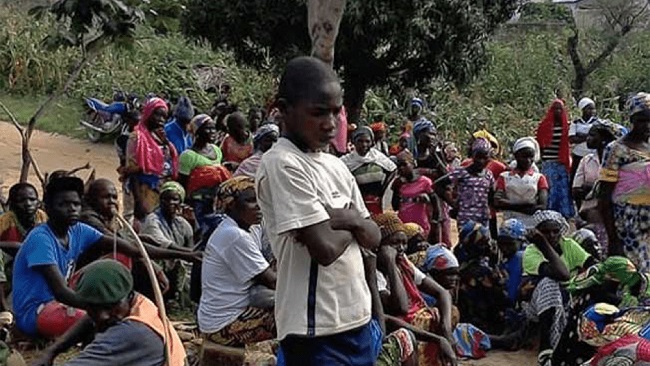Cameroon Clears its Streets of Abandoned Kids
The coronavirus outbreak in Cameroon, with over 655 confirmed infections, has accelerated a government plan to remove thousands of homeless children from the streets. About 3,000 street children are to be reunited with their families or receive job training, including orphans and asylum-seekers from the neighboring Central African Republic.
Henri Nyambi Dikosso, director of national solidarity at Cameroon Ministry of Social Affairs is leading a group of social workers and hospital staff removing hundreds of children from streets in the capital Yaoundé this Monday morning. Dikosso says they are making sure they screen against COVID-19, which has been spreading in the central African state.
He says they are taking body temperatures so that the Ministry of Health, which is their partner in the operation to clear children from the streets, can start taking care of suspected COVID-19 cases. He says they are also making sure that street corners where the children lived are disinfected and the children are washed to stop the risk of infections.
Safia Djamila, 17, is among the children who have agreed to leave the streets. She says she has been on her own for three years, living on donations from well-wishers and on leftover food from restaurants. Djamila says she escaped from their family home in the northern town of Mokollo when she lost her mother, and her father brought in another wife who molested her and refused to send her to school.
She says she is leaving the streets because she wants to learn how to cook, sew dresses and do embroidery. She says her dream is to raise money to attend literacy classes so she can read and write.
Ten years ago, Cameroon said it had counted a thousand street children with ages from 4 years to 17 years in the towns of Yaoundé and Douala. The figures increased to over 10,000 when the separatist crisis broke out in the country’s English speaking north west and south west regions, and Boko Haram terrorism intensified on Cameroons northern border with Nigeria.
Many asylum seekers also came from the troubled Central African Republic.
Cameroon had plans to clear at least 3,000 children from the streets before the end of this year, but the spread of COVID-19, confirmed in 655 of its citizens in about a month, has forced officials to begin removing them from the streets earlier than planned.
Marie-Therese Abena Ondoua, Cameroon minister of Women’s Empowerment and the Family says parents in particular and communities in general should save the lives of the children by clearing them off the streets.
She says they are asking parents who want their children back home to assume their responsibilities by assuring that there is family stability and rigor. She says the government will be giving either education or job training to orphans, asylum seekers and those who refuse to be reunited with their families. Ondoua said high levels of poverty, conflict, family disunity and a high rate of divorce, illiteracy, rural exodus and early marriage were responsible for the increasing number of street children.
Source: VOA





